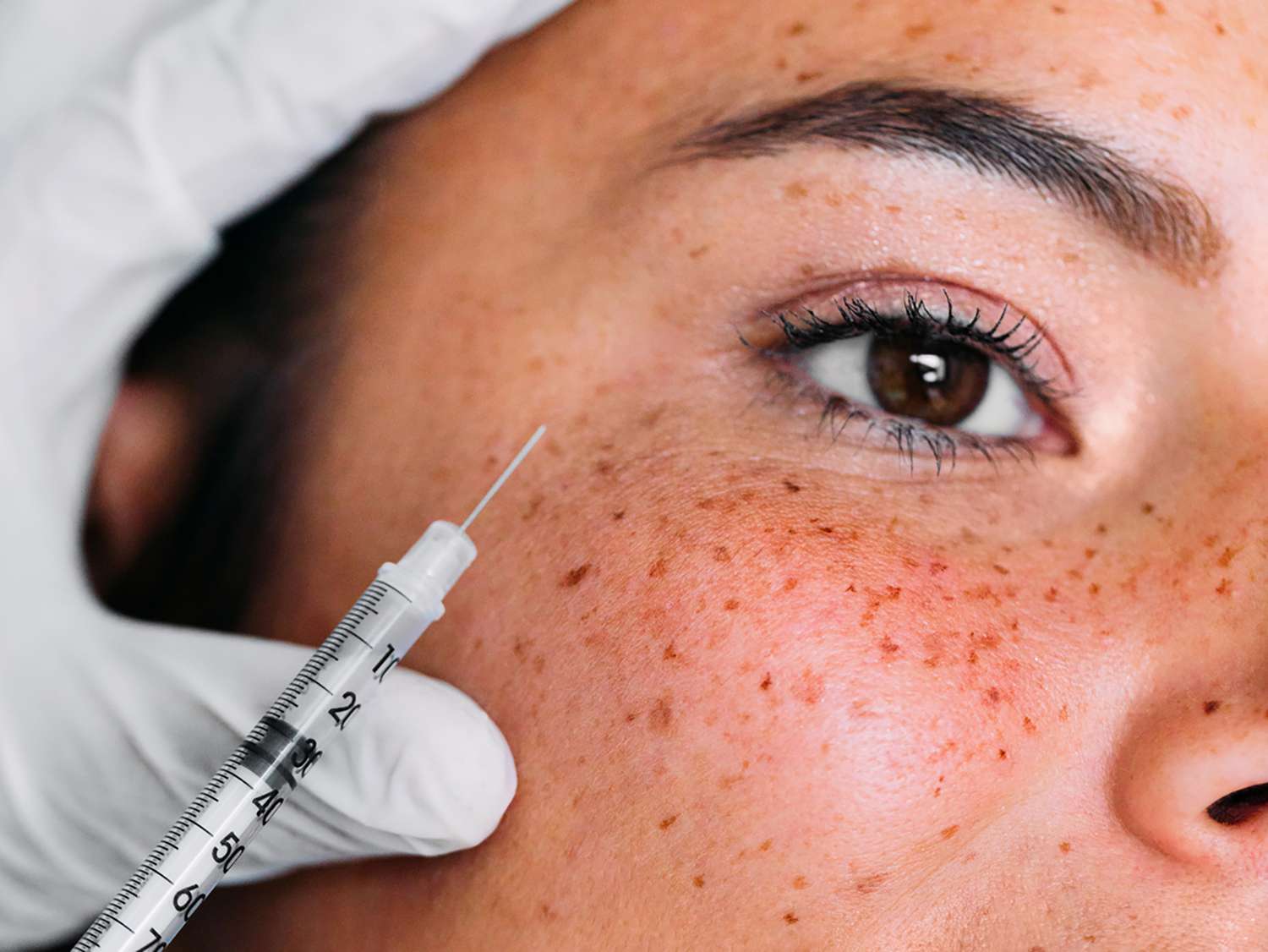
Botox and similar injections work by relaxing facial muscles to smooth out fine lines and wrinkles.
Below, Dr. Murray explains how long Botox lasts, how often you might need it, and what you can do to make your results last a little longer.
- Botox and similar injections work by relaxing facial muscles to smooth out fine lines and wrinkles.
- Results can appear within a few days and reach their full effect in approximately two weeks.
- The duration of Botox’s effect may be affected by the dose and other individual factors.
- For best results and to avoid side effects, always choose a qualified and experienced provider.
More than four million Americans receive injectable treatments like Botox each year, according to data from the American Society of Plastic Surgeons.
Botox is the brand name for an injectable medication from a group known as neuromodulators, explains Dr. Taryn Murray. Other popular brands in this category include Dysport, Xeomin, Jeuveau, and Daxxify.
“Normally, our nerves send signals to our muscles, causing them to contract, which is how we generate facial expressions and muscle movements,” she explains. Neuromodulators like Botox work by interrupting that signal, resulting in smoother skin and a temporary reduction in muscle activity.
How does Botox work?
“When injected at precise points, these medications [like Botox] block the nerve signal to the muscles, weakening or eliminating muscle contractions depending on the dose,” explains Dr. Murray. When muscles can’t contract as strongly as they should, the overlying skin can relax. This smooths out existing wrinkles and helps prevent new ones from forming, giving the skin a smoother appearance.
However, the effects of Botox aren’t permanent. “Like any medication, the body metabolizes Botox, so its effects are only temporary ,” she adds. Over several months, the body gradually breaks it down, and the results begin to fade.
How long does it take for Botox to take effect?
It’s not instantaneous, but the results don’t take long to appear either. “Some people may start to see results within a few days of treatment, but Botox takes approximately two weeks to take full effect,” says Dr. Murray. If you’re planning an important event, be sure to inform your doctor. This way, they can coordinate the treatment so the full results have time to be seen.
How long does the effect of Botox last?
“On average, Botox lasts approximately three to four months, but several factors contribute to the duration of the effects, including the dose, injection location, treatment interval, and patient-specific factors,” explains Dr. Murray.
According to Dr. Murray, the higher the dose (or number of units) used, the longer-lasting the results tend to be. Equally important is where the Botox is injected: precise placement in the targeted muscle is key to both a natural appearance and long-lasting effectiveness.
Scheduling your sessions correctly can also make a difference. Letting the Botox effect wear off completely before receiving another treatment can help prolong long-term results, as it allows all receptors to reopen and fully respond to the medication.
That said, individual factors play a significant role. Some people naturally metabolize the drug faster than others, especially those who are very physically active. There’s even evidence from smaller studies suggesting that zinc supplements may enhance the effects of Botox, as zinc is necessary for the drug to work properly, adds Dr. Murray.
And if you’re wondering if the reason for your treatment affects how long your Botox lasts, the answer is: not really. Whether you get Botox for cosmetic reasons (such as smoothing fine lines) or for medical conditions like migraines or excessive sweating (hyperhidrosis), the effects typically last between three and four months with the proper dosage. This is because the body metabolizes it at a constant rate, regardless of different uses.
How often should I get Botox?
“The treatment program should be tailored to each individual based on how long the Botox lasts,” says Dr. Murray. For most people, this means a touch-up every three to four months.
Following a consistent routine can help keep your facial muscles relaxed and achieve better long-term results. But even without following a strict program, improvements can be seen. “While a consistent treatment program can produce better long-term results, any Botox treatment offers benefits.”
How to make Botox last longer
To prolong the duration, Dr. Murray recommends maintaining a consistent treatment program and consulting with your doctor about zinc supplementation. She also notes that intense and frequent exercise can boost your metabolism, which may speed up the wear-off of Botox.
It’s normal to experience mild bruising, swelling, a temporary headache, or some tenderness at the injection sites. However, she warns that improper application of Botox can cause droopy eyelids, uneven eyebrows, or other facial asymmetries for several months, depending on where the injection is made.
“To avoid these unwanted side effects, always seek treatment from an experienced physician, such as a board-certified dermatologist, and don’t be afraid to ask about your injector’s credentials,” she concludes.







